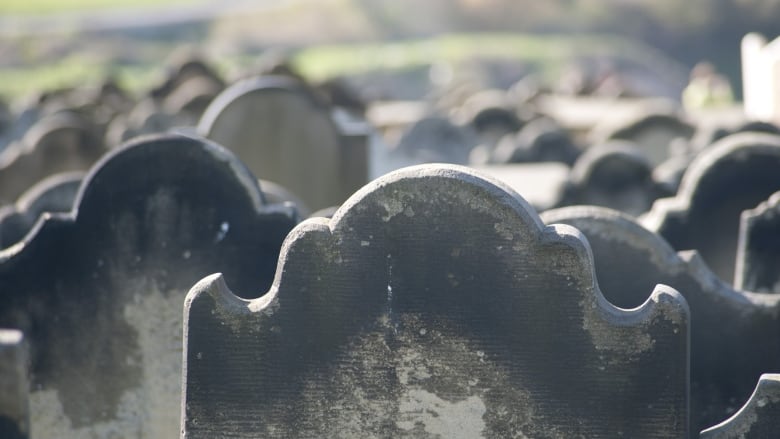Edmontonians dig deeper into death at green burial seminar
'I feel that it is the most honouring way to merge back with the earth'

We're all going to die — it's unavoidable.
While people don't have much say over when the Grim Reaper inevitably comes knocking, they can plan what happens next.
About two dozen people gathered at St. Stephen the Martyr Anglican Church in north Edmonton on Sunday to discuss green burial.
The environmentally conscious burial method avoids using chemicals and graves with concrete liners, often opting for a cloth shroud or biodegradable casket.
- Grave changes: More Albertans opt for green burials
- Green burials: Everything you need to know about the growing trend
Death might not be a hot topic at the dinner table, but the advent of green burials is giving people a new reason to delve into their demise — and decomposition.
Kathleen Miller was one of the people who heard Anglican faith leaders and end-of-life planners speak about green burials on Sunday.
It's a topic she's been interested in for about seven years, and something she had to face head-on when she was diagnosed with breast cancer last year.

Miller has since completed treatment and has a positive prognosis, but her green burial death plan is still in place.
"I feel that it is the most honouring way to merge back with the earth — environmentally, spiritually, humanly," she said.
Cremation and embalming services are advertised across Edmonton, but Miller said it seems green burial hasn't been as readily available.
"People knowing what their options are makes them really more empowered to make good decisions that they can feel good about, that can help and heal their loved ones that [they] leave behind," she said.
End-of-life planning consultant Gina Vliet said green burials are available at Rosehill Cemetery and Christ Church Cemetery Poplar Lake.
"Our death should reflect our values as much as our life does," she said.
"It's not a subject we like to talk about — death. But people are becoming aware that there are other choices."

Natural burial isn't anything new. After all, Neanderthals beat modern humans to the trend more than 40,000 years ago.
"Everything old is new again," Vliet said.
"We've been burying people in the ground for a very, very long time. Medicalization of death has [happened], and that was in the '30s. And now we're getting back to more green burial."
Islamic and Jewish traditions forbid cremation, and call for the burial of bodies shortly after death.
John Matthews, a volunteer with the Poplar Lake cemetery, said he'd like to see more Christian groups adopt the practice. He sees it as a return to the familiar Anglican prayer, "earth to earth, ashes to ashes, dust to dust."
"This really helps bring us to a more healthy attitude toward death, a more Christian attitude toward death and approaching it and dealing with it," he said.
With files from Jordan Omstead and Anna McMillan